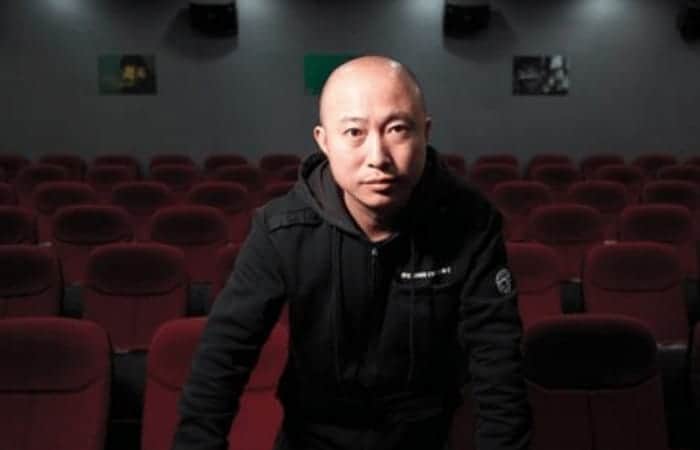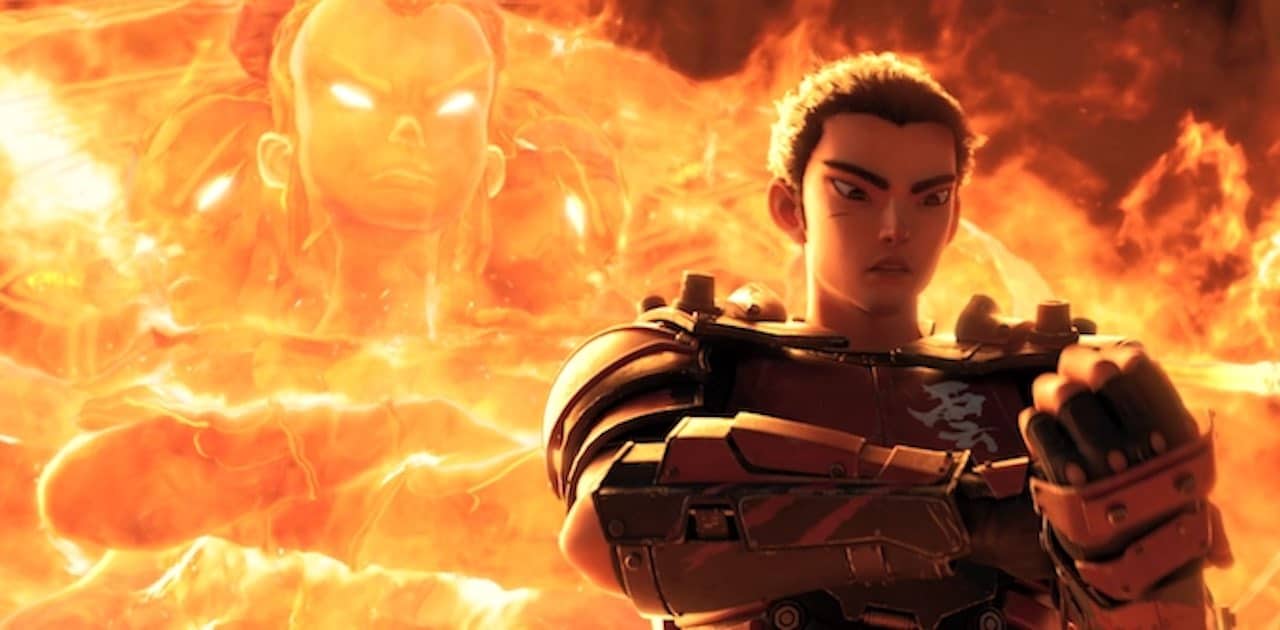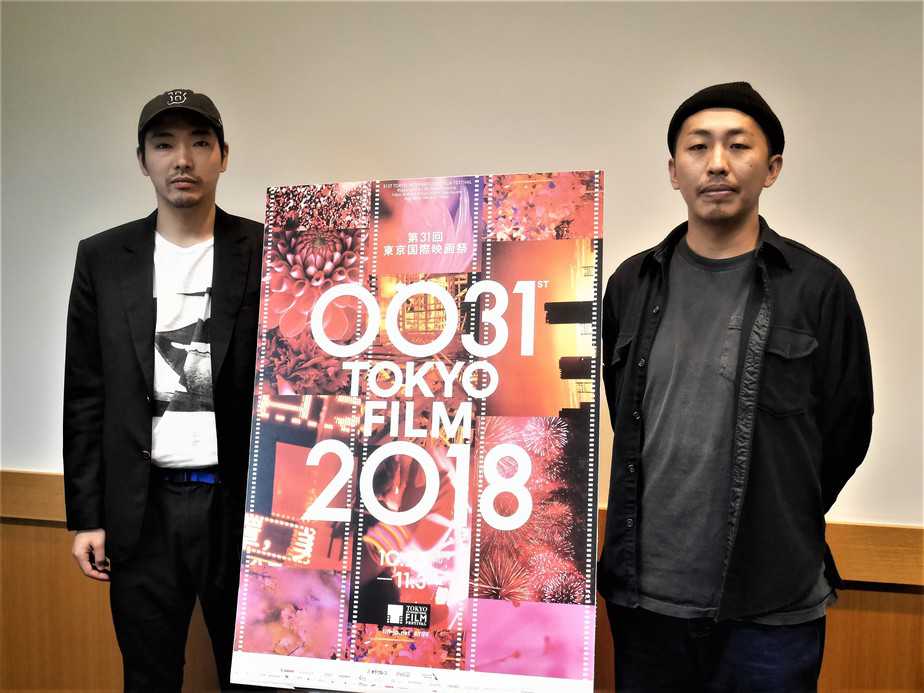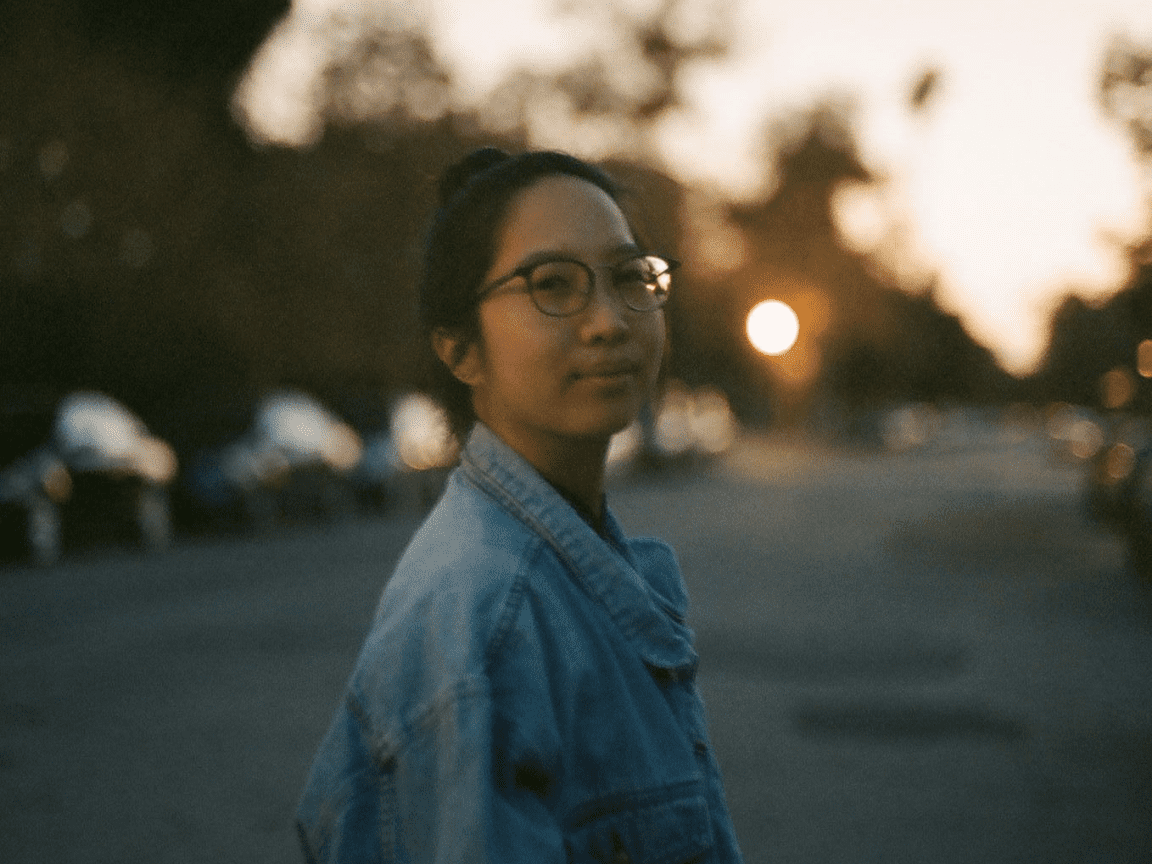Geng Jun was born in 1976 in Heilongjiang Province, China. He has directed and written many films including “Hawthorn (2002), “Diary in Bulk” (2003), “Barbecue” (2004 Festival of 3 Continents, 2005 International Film Festival Rotterdam), “Youth” (2009 Rome International Film Festival), and “The Hammer and the sickle are sleeping” (2013 Taipei Golden Horse Film Festival best short film winner). Jun also directed Poetry and Disease (2011). In 2017, his film “Free and Easy” won the World Cinema Dramatic Special Jury Award for Cinematic Vision in Sundance.
On the occasion of “Free and Easy” screening at Fantasia International Film Festival, we spoke with him about his career, the film, his approach towards the medium, Chinese society, and many other topics.

Your career has surpassed the borders of China, particularly this year, with the award in Sundance and the screening in International festivals around the world. Are you proud of this accomplishment, and can you tell us about the path that led you to this point as a filmmaker?
It's quite delightful to win the award in Sundance Film Festival. I felt excited as well as nervous to promote my own film and meet the audience from different countries and places, because unknown things happen every day. I want to get to know the film forms in other places around the world. It is a process of learning and a process of communication at the same time.
I haven't felt proud of the accomplishment yet for that I regard this as just a beginning. There is still a long way to go.
I was a film buff at the first place and I also have an appetite for literature and drama. I started to shoot short films in 2002 when DV began to be popularized and gradually started to shoot full-length films, in which process I gained experience and associated with like-minded film makers. “Free and Easy” was created with these friends; the producer, DP, actors and sound director have all been friends to me for more than 10 years. It is my third feature film, and I also directed documentaries and short films before.
“Free and Easy” is filled with a rather interesting, intelligent sense of humor. Why did you choose this approach? Most of the productions that come out of China do not share this tactic. Why is that do you think?
This is might related to regional features. First of all, I am from Northeast China where the weather is quite cold for half of every year and the people living there need to kill plenty of boring time by drinking and chatting. Therefore, the utterances are full of wisdom and sense of humor. As an observer and collector, I use these utterances in my scripts and present them in my films.
I created “Free and Easy” in a subjective way, according to my own interest and understanding of film. The creativity and freshness of film is what I care about. The fact that this film is different from others exactly proves that our creativity is realized well. I hope to see other film auteurs create more different films.
The film criticizes, by parodying, many aspects of the Chinese society, like the police, the Buddhist monks, the mafia, the bureaucrats, the small time crooks. Why did you choose to show them in that fashion, and are you afraid of any kind of outcry, from either of these groups?
I depicted them in a mild and implicit way and hope it would stimulate the audience's thinking. I regard the description of the living environment around as the basic freedom as well as a choice for an author. If the author has made the choice, he should also face the outcome. I am not afraid of any kind of outcry and there has not been any kind of outcry because of the descriptions in the film. There are many things unknown in the future and I hope they are positive.
What is your opinion of the contemporary Chinese society?
There are many problems in the social institutions. People live in confusion and face life with guilt every day because of the chaos and loss of faith.
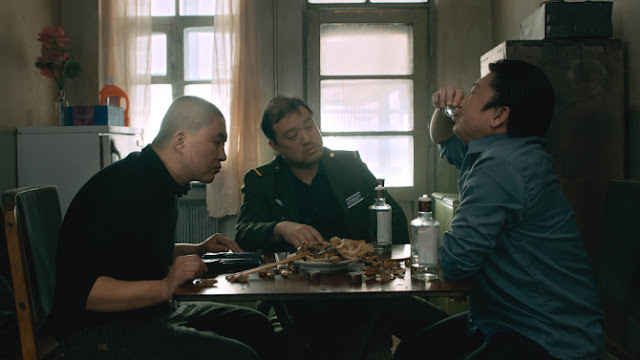
I enjoyed the fact that eventually most of them come together, becoming a company. How did you come up with this idea?
It's sometimes a flash of inspiration when creating a script. It's interesting to have someone with guilt and a Christian gather together and look for friendship. It has dual implications of the cruelty of life and the desire for friendship.
The location the film is shot is very interesting. Can you tell us a bit more about it? Did you stumble upon any difficulties during the shooting?
It's Hegang, an industrial city producing coal in Heilongjiang province in north China. After years of over-exploitation, many areas have turned into subsidence areas. The original residents have moved out and large areas have become dilapidated. It has a view of post-industrial age just as it is in the film. The city certainly has high buildings and large mansions in the bustling downtown, but they are not shown in the film because I chose to show these dilapidated places.
We didn't have many difficulties apart from the cold while shooting.
Wang Qeihua's cinematography is one of the film's best qualities. Can you tell us about your collaboration and the way you chose to shoot the film? Can you elaborate on the last scene with the SFX, which seems much different than the rest of the film?
Wang Weihua and I have been old friends for a long time, and we have cooperated for years. “Free and Easy” is a low budget film, while we spent three days to find the cinematography style with test shots. It should be accurate at first, after which the style is constructed.
Actually, there is no SFX in the last scene, but only green and yellow light in the night scene. We want to shoot a scene that the character is walking in hell and I want the hell to be a little beautiful. Wang Weihua and I were very worried because we only have limited lights and we couldn't design something very complicated. He designed the green light firstly to make the character walk like a ghost. The tender yellow light is sparkling in the distance, looking like the entrance of hell. The design of light is simple yet outstanding. During shooting, it began to snow, making the scene eviler and more beautiful.
The music tracks in the film are from a band called Second Hand Rose. Why did you choose their songs?
I'm a fan of the talented band Second Hand Rose and we have been friends for years. The lead singer Liang Long is also from Heilongjiang province, thus their works have a north China feature. There is a chemical reaction between their stylized music and my film. An amazing experience was produced when the visual effect and auditory effect were combined together.
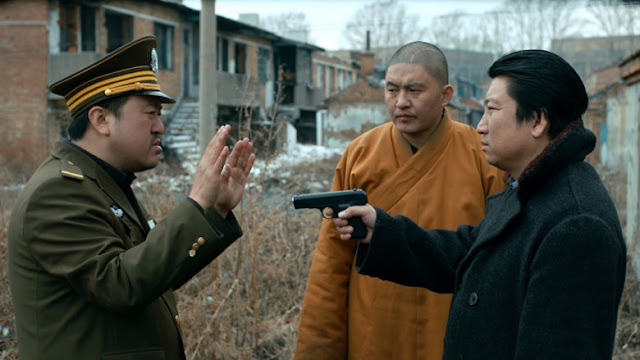
All of the actors manage to present their character's quirkiness quite nicely, but the ones that stand out are Zhang Zhiyong, Xu Gang and Gu Benbin. Can you tell us about how you chose the particular actors and how you guided them? In general, what was the casting process like for the film?
They are all non-professional actors. They are my friends and we have been cooperating since my first short film. I depend on them very much. They always provide vivid and accurate performance, which is quite inspiring. I really like them and we respect each other.
At first, I gave a demonstration to them. We slowly feel and communicate to find the accurate feeling. We took our time to shoot until we got the best shot.
These actors spend most of the time living their own life and find interesting things in life. They observe and comprehend life in their own ways, which is the best nutrient for art. I hope they could be discovered by other great actors and make more great films.
What is your opinion of the Chinese film industry at the moment?
I don't have much opinion about the Chinese film industry at the moment because I am an outlier of it. The films I currently make are not very related to the industry. There are many independent film makers making efforts to make films in their own ways. Although it's difficult, there are still good and anticipated films every year.
Which are your favorite movies/filmmakers?
Some Like It Hot by Billy Wilder, City Lights and Modern Times by Charles Chaplin, Mies vailla menneisyyttä by Aki Kaurismäki, Fargo by Coen brothers and Underground by Emir Kusturiča etc.
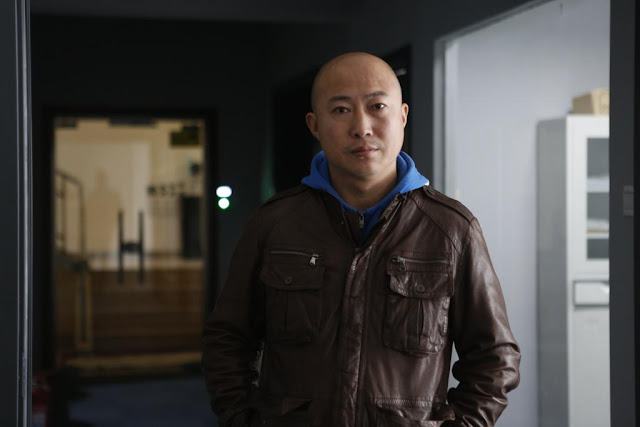
What are your plans for the future?
I will continue making films. I will read more novels, watch more dramas and films, visit more places. This is such a big world filled with interesting things. I will take my time.
“Free and Easy” is distributed by FilmRise and will be available for purchase and rental on Amazon, iTune, Vudu, and on DVD and Blu-ray.


